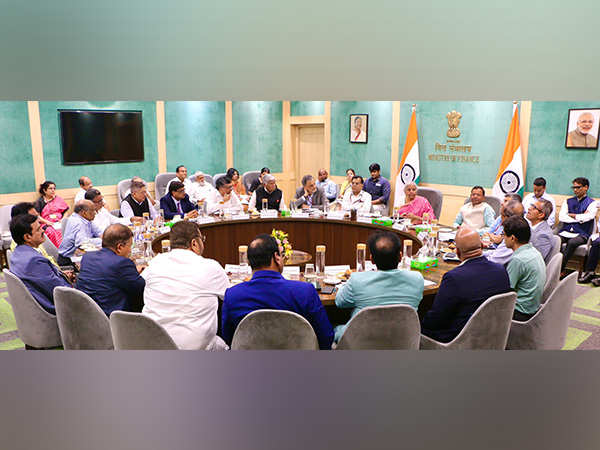New Delhi: Union Minister for Finance and Corporate Affairs, Nirmala Sitharaman, chaired the fifth Pre-Budget Consultation in New Delhi on Friday. The session focused on gathering vital inputs from representatives of the Micro, Small, and Medium Enterprises (MSME) sector for the forthcoming General Budget 2024-25.
Sandeep Jain, representing the Federation of Indian Small and Medium Enterprises (FISME), emphasized the necessity for comprehensive digitization of the funding process. Jain said, “In terms of funding, we have emphasized that there should be complete digitization. The discretionary powers that bankers currently have should be eliminated. Regarding GST, representatives from certain sectors such as ceramics, TV, textiles, etc., have discussed their concerns with the Finance Minister.”
He added, “She assured them that she will consider their issues and get back to them. The MSME sector is mostly directly connected to citizens, so there is a demand to strengthen the MSMEs. Just as housing loans are provided at lower rates, MSME loans should also be offered at reduced rates.”
Murali Krishna Vasireddy, President of the Federation of Andhra Pradesh Small and Medium Industries Associations (FAPSIA), underscored the challenges faced by MSMEs in Andhra Pradesh, particularly those still reeling from the impacts of the COVID-19 pandemic.
He called for simplified taxation and a reduced compliance burden, as well as tax exemptions for MSMEs supplying goods and services for significant government projects like the Polavaram dam. Vasireddy also requested tax exemptions for unique, geo-identified products such as Dharmavaram sarees, Kondapalli toys, and Atreyapuram Putharekulu sweets, to support local artisans and promote regional economic development.
Ghanshyam Ojha, President of Laghu Udyog Bharti, along with General Secretary Om Prakash Gupta, presented a detailed agenda for strengthening Micro and Small Enterprises (MSEs). They emphasized the need for prioritizing MSEs in manufacturing sectors to transform India into an export hub and achieve the vision of ‘Atmanirbhar Bharat’ (self-reliant India).
Their proposals included the establishment of a robust system for accurately identifying the number of MSEs, addressing working capital issues, and creating a dedicated grievance redressal mechanism for MSEs. Ojha and Gupta also suggested several policy changes, such as easing land conversion laws for MSMEs and providing consistent and subsidized electricity rates nationwide.
They advocated for enhanced support for MSME exports and tax deductions for the internationalization of MSMEs, highlighting the need to overcome competition from other countries and improve the marketing capabilities of Indian MSME exporters in international markets. Addressing liquidity crunches, they suggested cluster-based financing strategies and urged for timely fund releases from government bodies.
They also called for simplified Udyam Aadhaar registration, a dedicated grievance redressal mechanism, and uniformity in labor law thresholds to ease compliance. Measures to streamline land conversion, provide subsidized electricity, and incentivize exports were also emphasized, aiming to enhance MSE competitiveness and foster sustainable growth.
Attended by Union Minister of State for Finance, Pankaj Chaudhary, Finance Secretary and Secretary of Expenditure, Secretaries from the Departments of Economic Affairs, Industrial Policy and Promotion, and MSME, along with the Chief Economic Adviser, the meeting underscored the government’s commitment to addressing the challenges faced by MSMEs.




















